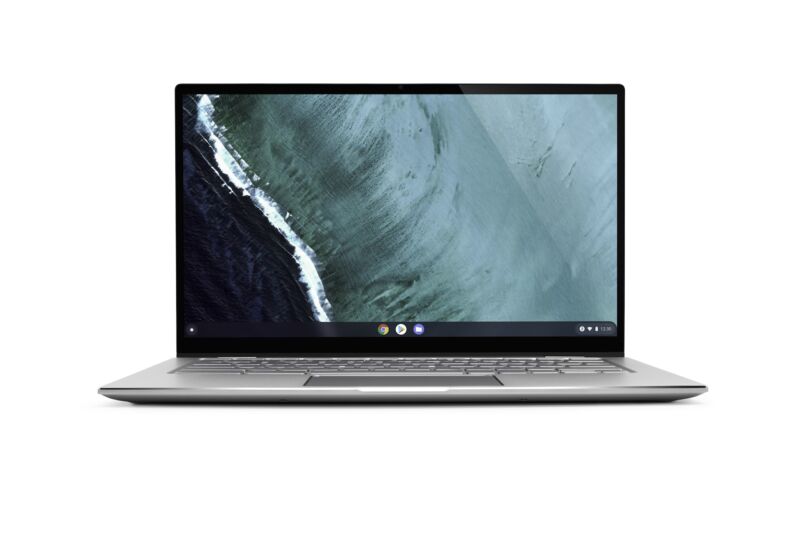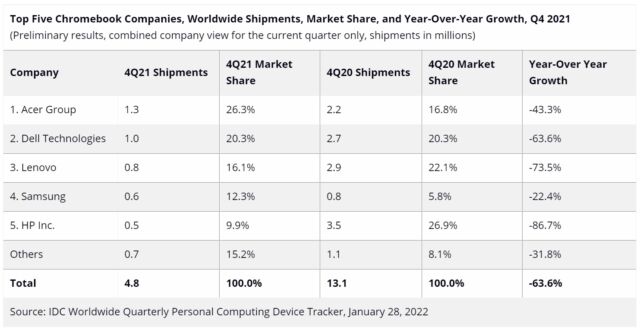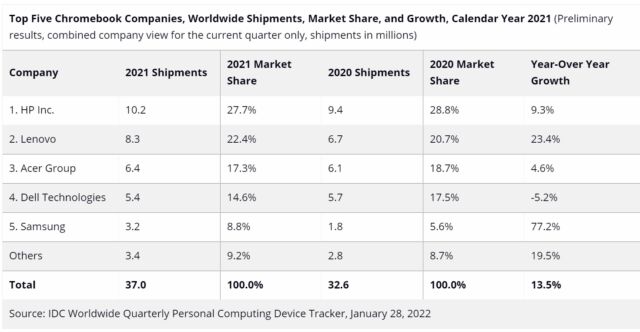
In a tech world still hindered by component shortages, choices have to be made. And in the world of laptops, Windows-based devices are being chosen over those running Chrome OS.
IDC on Monday released early data from its latest Worldwide Quarterly Personal Computing Device Tracker. The tracker pointed to a sharp 63.6 percent decline in Chromebook shipments, which the IDC defines as “shipments to distribution channels or end users, in Q4 2021 (4.8 million shipments) compared to Q4 2020 with (13.1 million shipments).”
In addition to market saturation, supply issues also hurt Chromebook shipments, as the industry still struggles with a deficit of PC components, from CPUs to integrated circuits for Wi-Fi modules and power management.
“Supply has also been unusually tight for Chromebooks as component shortages have led vendors to prioritize Windows machines due to their higher price tags, further suppressing Chromebook shipments on a global scale,” Jitesh Ubrani, research manager with IDC’s Mobility and Consumer Device Trackers, said in a statement accompanying Monday’s announcement.
Ubrani told Ars Technica that IDC doesn’t know for sure whether Windows 10- or Windows 11-based machines are getting priority over Chrome OS devices. Windows 11 debuted in 2021, giving PC makers an excuse to refresh lines with “Windows 11-ready” systems.

But with PC availability still scant, it’s likely that Windows 11 has had a smaller impact on PC sales.
“Generally, the launch of a new OS has driven demand, though this time around the demand is already quite high and supply is low, so buyers aren’t making their purchase decision based on the version of the OS,” Ubrani told Ars Technica. “As a result, we don’t believe Windows 11 specifically has had an impact on [Chrome OS device shipments] or the PC market in general.”
Ubrani also pointed to market saturation in the US and Europe (which were extra hungry for Chromebooks as remote learning and work grew) as slowing global growth. According to Ubrani, “Chromebook demand in emerging markets has seen continued growth in the past year.”
But Chromebooks were actually more popular in 2021 than in 2020, with 4.4 million more machines sold. Lenovo saw the biggest growth, moving from 6.7 million Chromebook sales in 2020 to 8.3 million in 2021.

At 10.2 million devices, HP sold more Chromebooks last year than any other vendor.
https://arstechnica.com/?p=1831259

